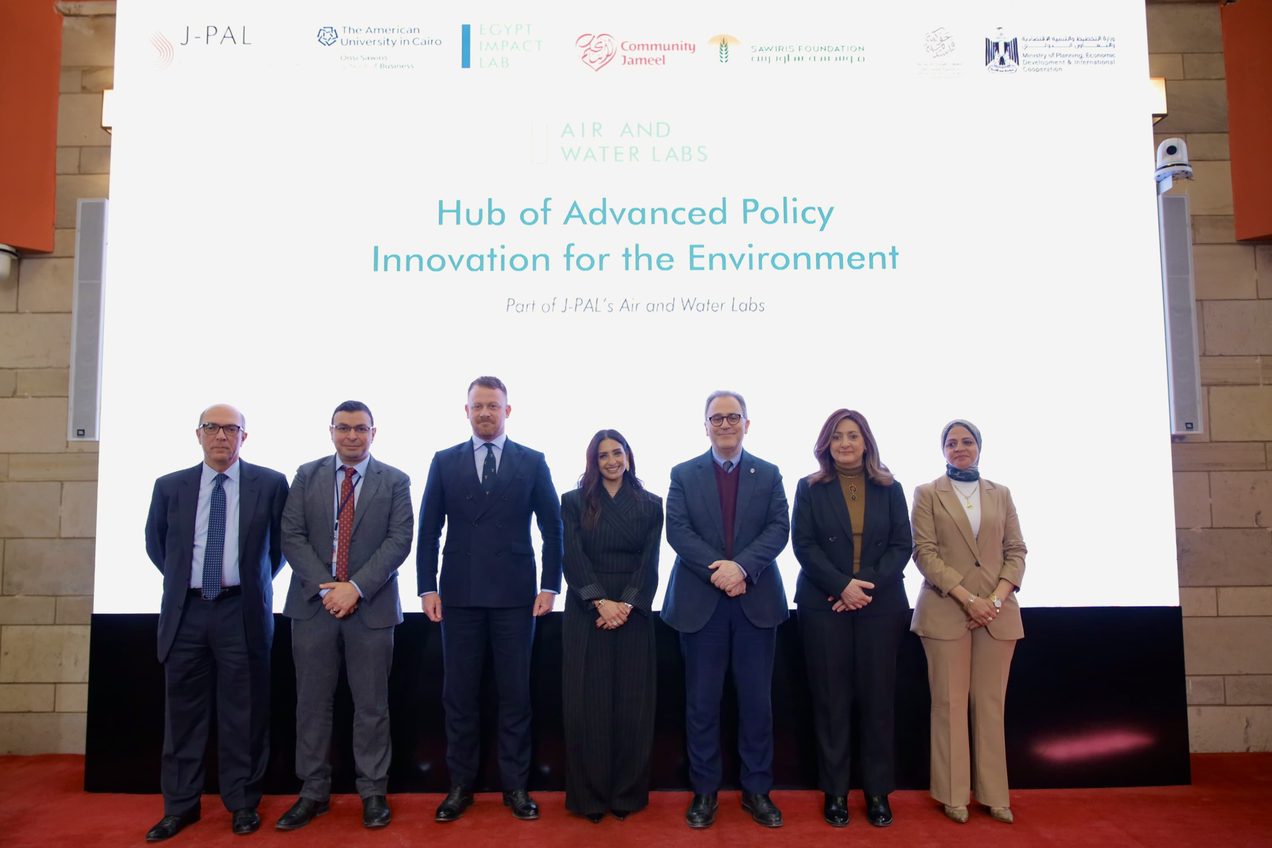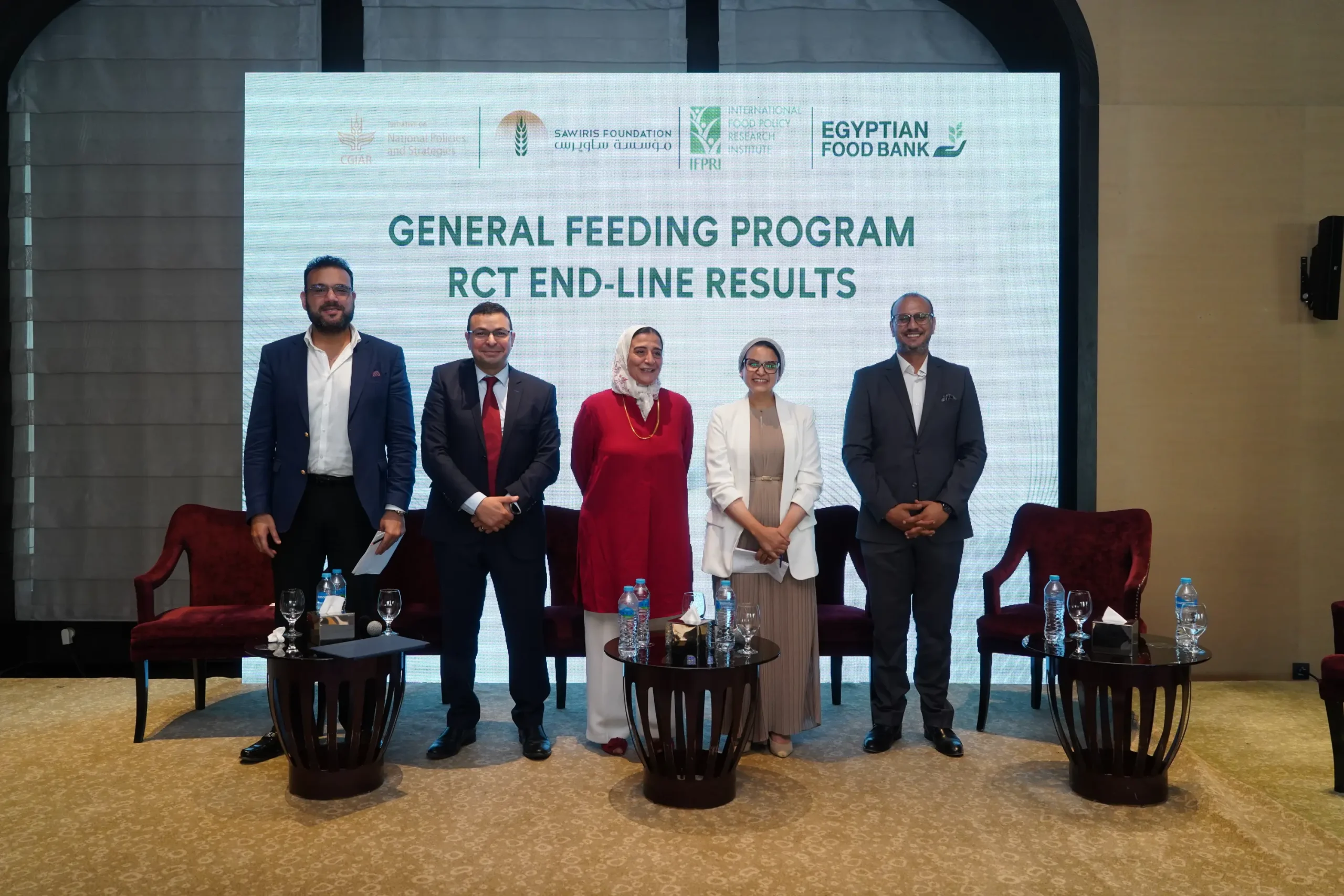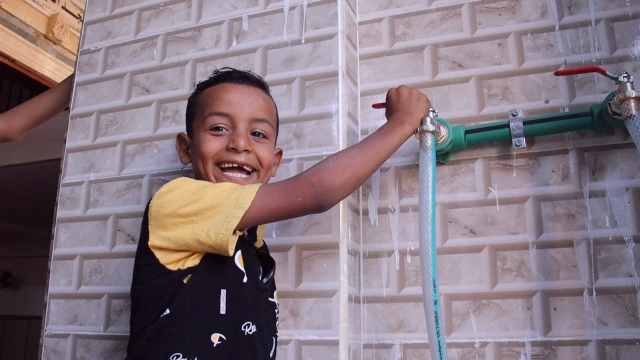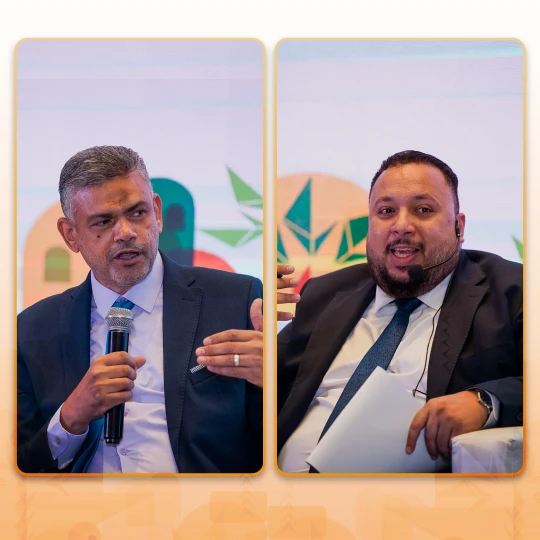Many marginalized communities in Egypt face multiple barriers to resources and opportunities that affect their ability to overcome poor living conditions or cater to their most basic needs.
When the Sawiris Foundation for Social Development (SFSD) first met 42-year-old Badria in 2019, she was the primary caretaker of her three siblings who are living with mental disabilities. She was also looking after her nephew and niece after their mother passed away and their father had deserted them. Appearing low in confidence, she did not complete primary education and worked at a local court as a cleaner, with barely enough income to sustain her household’s basic needs. According to her, her working hours made it impossible for her to consider running enterprises to diversify her income and improve the living conditions of her family, sharing that she could not even store commodities in her house as it was ridden with rats.
Badria and her family live in Sohag, one of the poorest governorates in Egypt. It is often the case that individuals within poor households are stuck in a cycle of poverty, with little to no resources or tools that can support them in overcoming barriers such as poor health, the lack of education or the poor quality of work.
For decades, the Egyptian government has continued to work on supporting households and individuals like Badria out of poverty.
According to the Egyptian Central Agency for Public Mobilization and Statistics (CAPMAS, 2019), the average annual household income in Egypt decreased by 18.9% at constant prices in the year 2017/2018. The extreme poverty rate increased from 5.3% in 2015 to 6.2% in 2017/2018. Poverty is concentrated in the rural areas of Upper Egypt, where 51.9% of the population cannot meet their basic needs. Thus, food support forms an essential part of the social safety net system in Egypt, and this system works to achieve protection for families from the impact of high food prices through the ration card system. Also, initiatives such as Takaful & Karama, Hayah Karima and Forsa are such examples of social protection schemes that are addressing the multi-dimensional factors causing poverty. And yet, there is still so much work to be done. With the advent of the Covid-19 pandemic, there is an even greater need for civil society organizations to find innovative solutions that can empower poor households and improve their standards of living.
In this light, in 2019 SFSD partnered with BRAC Ultra-Poor Graduation Initiative (UPGI), the Abdul Latif Jameel Poverty Action Lab in the Middle East and Africa (J-PAL MENA), Egyptian Human Development Association (EHDA), and Giving Without Limits Association (GWLA), to pilot a promising intervention that has shown positive impact on improving household wellbeing and standard of living.
This program is being piloted among 2,460 targeted households in Egypt’s two poorest governorates, Assiut and Sohag. The program, named “Bab Amal” or “The Door of Hope”, is a multifaceted set of interventions designed to address the complex nature of extreme poverty through offering beneficiaries:
- a consumption stipend for eight months
- a productive asset such as livestock, equipment or seed capital
- life skills sessions for 18 months of the program such as coaching and mentorship
- financial training for 2-3 days before the transfer of the asset and savings sessions that continue throughout the duration of the program
Our assumption at SFSD is that through these interwoven offerings, the household struggling to overcome poor living conditions will be able to increase their income, empower themselves in their communities, manage their finances and savings to overcome external shocks such as the Covid-19 pandemic and will meet their basic needs.
Since the start of the program in October 2019, approximately 2,267 households were enrolled in the program and have been benefitting from these interventions.
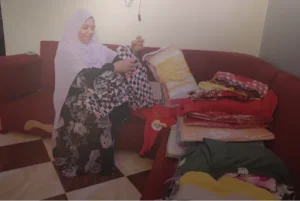
SFSD was fortunate enough to serve Badria and her family as a part of this program.
Although she was reluctant at first to purchase an asset as a result of low self-confidence, Badria eventually used seed capital to purchase ready-made garments and sold them to her colleagues at her workplace, in addition to selling Covid-19 masks during the pandemic. Through the financial training, she understood the value of diversifying her assets and, shortly after making some profit from selling the ready-made garments, she established a small grocery store within her workplace to serve employees as well as a small shop at home to sell slippers after work. The regular mentoring and coaching supported her in taking these decisions and building her confidence to venture out and support her community, which eventually led her to supporting other beneficiaries in marketing their home-made products such as bed sheets in her shop for a small percentage of the profit.
“Since I became a part of the Bab Amal program and received my project, I have become successful. I would have regretted it if I had insisted on not receiving it. Now, I can sell and purchase items and support my family. Thank God!”
Such a transformational journey towards self-employment and financial sustainability during the period of a pandemic is inspiring and is at the heart and core of SFSD’s support of these programs.
This is why we are also committed to exploring whether the Bab Amal program proves as effective to all beneficiaries beyond the individual success stories. Through partnering with J-PAL MENA, researchers Adam Osman, Ragui Assaad and William Parienté are leading a research team to evaluate the impact of the Bab Amal program. Specific questions include:
- Did the program have an impact on beneficiary households’ consumption, asset ownership, health, and the food security of households?
- What is the impact of explicitly targeting income-generating support (asset transfer and technical training) to women in the households compared to the male heads of the household?
- Can a lower-cost model of the program lead to similar household outcomes?
In answering these questions through randomized evaluations, the study can guide us to understand the cost-effectiveness of the program and what populations benefit most from the program. We hope that through these findings, other civil society organizations, international organizations and most importantly, the Egyptian government can benefit from these learnings and use them when serving similar beneficiaries.

